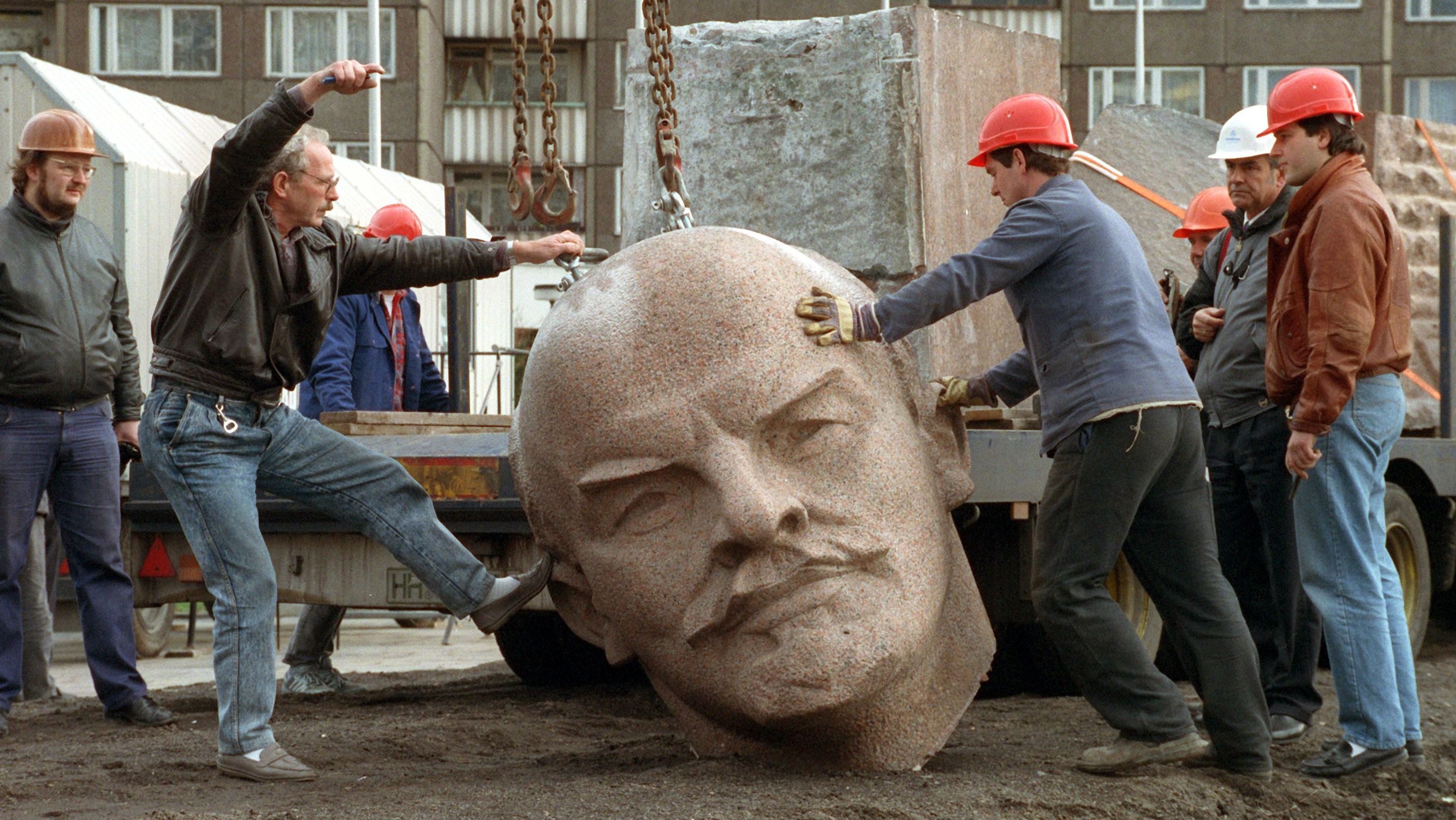Is removing a Confederate statue an attack on history?
Spain removed the last monument to Franco in 2008, while in Ukraine Lenin statues have been tumbling down in every town, village and city

A free daily email with the biggest news stories of the day – and the best features from TheWeek.com
You are now subscribed
Your newsletter sign-up was successful
More than 150 years after the Civil War ended, Americans are removing statues and monuments celebrating Confederate figures to erase memories of a painful past – and the US is far from alone in doing this.
Ukraine has removed all 1,320 statues of Communist revolutionary leader Vladimir Lenin to distance itself from its 72-year occupation by the Soviet Union, The Independent reports.
Spain knocked former dictator General Franco off his pedestal, removing the last public monument to him in Santander in 2008.
The Week
Escape your echo chamber. Get the facts behind the news, plus analysis from multiple perspectives.

Sign up for The Week's Free Newsletters
From our morning news briefing to a weekly Good News Newsletter, get the best of The Week delivered directly to your inbox.
From our morning news briefing to a weekly Good News Newsletter, get the best of The Week delivered directly to your inbox.
Controversially, however, US President Donald Trump is among those in favour of preserving the historic monuments to Confederate icons, calling plans to remove the statues an attack on America's "history and culture."
Is Trump right? Or is there justification for removing monuments that trigger painful memories of a difficult era?
Consensus or rebellion?
The removal of historical monuments is an issue that often causes division and – as in the case of Charlottesville, Virginia – extreme violence.
A free daily email with the biggest news stories of the day – and the best features from TheWeek.com
Earlier this month, Charlottesville erupted into rioting between white supremacists and counter-protesters over the removal of a statue of Robert E Lee, the American general known for leading the Confederate Army during the Civil War. Those who favour tearing down such statues argue that they symbolise an unacceptable prejudice in a progressive era.
"Most of the people who were involved in erecting the monuments were not necessarily erecting a monument to the past," Jane Dailey, an associate professor of history at the University of Chicago told NPR. "But were rather, erecting them toward a white supremacist future."
According to a Reuters/Ipsos opinion poll, however, 54 per cent of Americans want the statues to be left alone and only 27 per cent want them removed.
Perspective and time
The removal of Lenin statues from Ukraine has created similar divisions among the population.
The regime that Lenin represents – the Soviet Union – was, to some, a brutally oppressive state, particularly in Ukraine where experts agree that later leader Joseph Stalin deliberately imposed a famine in 1932 (the "Holodomor") that killed as many as 10 million Ukrainians. To others, it was a period of stability under a communist economic framework they deem superior to present-day Ukraine's adoption of capitalism.
Similar controversy arose over Spain's destruction of monuments to dictator Franco and the removal of a statue to English settler Cecil Rhodes from the University of Cape Town in South Africa.
Some, like Trump, feel tributes to these figures should be preserved.
"Sad to see the history and culture of our great country being ripped apart with the removal of our beautiful statues and monuments," wrote Donald Trump in a tweet last week. "You can't change history, but you can learn from it. Robert E Lee, Stonewall Jackson – who's next, Washington, Jefferson? So foolish!"
Sal Mercogliano, a history professor at Campbell University, agrees.
"You can never erase history, just by removing a memorial you don't remove history. The history is always there."
Others are less convinced, arguing that taking away the most controversial monuments is justified. Esquire describes the removal of Confederate statues as a "fumigation" of history, rather than an erasing of it. "The fact that we're arguing over whether or not we should end the free ride through our history that treasonous racists have enjoyed for 150 years is a very salubrious moment," says Esquire writer Charles P Pierce.
Salubrious, perhaps. But in the US the debate has also proved to be divisive and deadly.